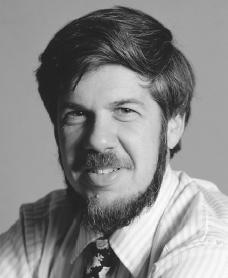
Stephen Jay Gould was an American paleontologist, evolutionary biologist, and historian of science. He was one of the most influential and widely read authors of popular science of his generation. Gould spent most of his career teaching at Harvard University and working at the American Museum of Natural History in New York. In 1996, Gould was hired as the Vincent Astor Visiting Research Professor of Biology at New York University, after which he divided his time teaching between there and Harvard.
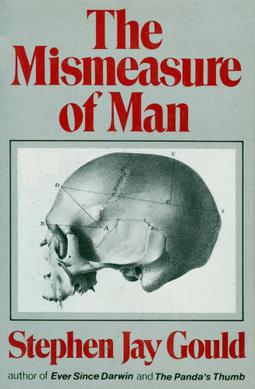
The Mismeasure of Man is a 1981 book by paleontologist Stephen Jay Gould. The book is both a history and critique of the statistical methods and cultural motivations underlying biological determinism, the belief that "the social and economic differences between human groups—primarily races, classes, and sexes—arise from inherited, inborn distinctions and that society, in this sense, is an accurate reflection of biology".
The Phi Beta Kappa Society (ΦΒΚ) is the oldest academic honor society in the United States. It was founded at the College of William & Mary in Virginia, in December 1776. Phi Beta Kappa aims to promote and advocate excellence in the liberal arts and sciences, and to induct outstanding students of arts and sciences at select American colleges and universities. Since its inception, its inducted members include 17 United States presidents, 42 United States Supreme Court justices, and 136 Nobel laureates.

Susan Haack is a distinguished professor in the humanities, Cooper Senior Scholar in Arts and Sciences, professor of philosophy, and professor of law at the University of Miami in Coral Gables, Florida.
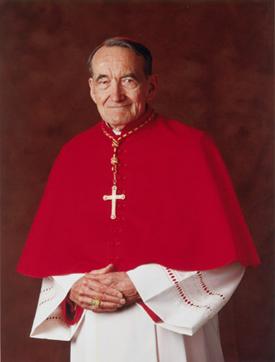
Avery Robert Dulles was an American Jesuit priest, theologian, and cardinal of the Catholic Church. Dulles served on the faculty of Woodstock College from 1960 to 1974, of the Catholic University of America from 1974 to 1988, and as the Laurence J. McGinley Professor of Religion and Society at Fordham University from 1988 to 2008. He was also an internationally known author and lecturer.
Victor Saul Navasky was an American journalist, editor, and academic. He was publisher emeritus of The Nation and George T. Delacorte Professor Emeritus of Professional Practice in Magazine Journalism at Columbia University. He was editor of The Nation from 1978 until 1995 and its publisher and editorial director from 1995 to 2005. Navasky's book Naming Names (1980) is considered a definitive take on the Hollywood blacklist. For it he won a 1982 National Book Award for Nonfiction.
Joseph Epstein is an American writer who was the editor of the magazine The American Scholar from 1975 to 1997. He has published books on subjects such as Ambition, Snobbery, Envy, Friendship, and Charm, as well as collections of his essays and stories, many of which previously appeared in various publications.

Eohippus is an extinct genus of small equid ungulates. The only species is E. angustidens, which was long considered a species of Hyracotherium. Its remains have been identified in North America and date to the Early Eocene.
Marilyn Frye is an American philosopher and radical feminist theorist. She is known for her theories on sexism, racism, oppression, and sexuality. Her writings offer discussions of feminist topics, such as: white supremacy, male privilege, and gay and lesbian marginalization. Although she approaches the issues from the perspective of justice, she is also engaged with the metaphysics, epistemology, and moral psychology of social categories.
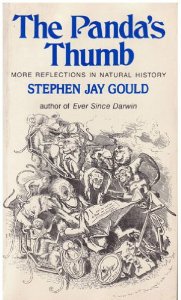
The Panda's Thumb: More Reflections in Natural History (1980) is a collection of 31 essays by the Harvard University paleontologist Stephen Jay Gould. It is the second volume culled from his 27-year monthly column "This View of Life" in Natural History magazine. Recurring themes of the essays are evolution and its teaching, science biography, probabilities and common sense.

Eight Little Piggies (1993) is the sixth volume of collected essays by the Harvard paleontologist Stephen Jay Gould. The essays were selected from his monthly column "The View of Life" in Natural History magazine, to which Gould contributed for 27 years. The book covers topics that are common to Gould's writing in a discursive manner, including evolution and its teaching, science biography, probabilities, and common sense.
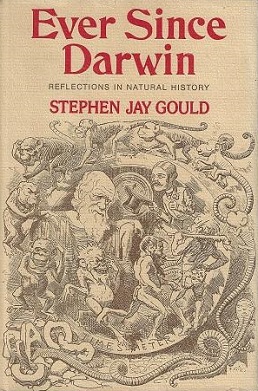
Ever Since Darwin is a 1977 book by the paleontologist Stephen Jay Gould. Gould's first book of collected essays, it originated from his monthly column "This View of Life," published in Natural History magazine. Edwin Barber—who was then the editorial director for W. W. Norton & Company— encouraged Gould to produce a book. He soon commissioned Gould to write The Mismeasure of Man, but it was not until three years later, when Gould accumulated 33 columns, that it occurred to either of them that the Natural History columns should be published in a single volume. The collection of essays, written between 1973–1977, became a best-seller and propelled Gould to national prominence.
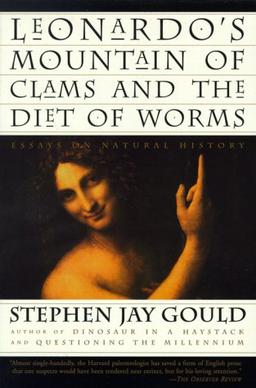
Leonardo's Mountain of Clams and the Diet of Worms (1998) is the eighth volume of collected essays by the Harvard paleontologist Stephen Jay Gould. This collection focuses on what Gould calls "humanistic natural history".

The Lying Stones of Marrakech (2000) is the ninth volume of collected essays by the Harvard paleontologist, Stephen Jay Gould.
Elizabeth Tallent is an American fiction writer, academic, and essayist.
William Ayres Arrowsmith was an American classicist, academic, and translator.
Robert Lacy is an American writer whose short stories and essays have been published in a large number of publications including The Best American Short Stories, Ploughshares, The Oxford American, Virginia Quarterly Review and The Gettysburg Review. He has also published several books of fiction and essays.

Jill Lepore is an American historian and journalist. She is the David Woods Kemper '41 Professor of American History at Harvard University and a staff writer at The New Yorker, where she has contributed since 2005. She writes about American history, law, literature, and politics.

Edwin Augustus Grosvenor was a historian, author, chairman of the history department at Amherst College, and president of the national organization of Phi Beta Kappa societies from 1907 to 1919. Grosvenor was called "one of the most cosmopolitan of Americans" by author and abolitionist Thomas Wentworth Higginson. His son, Gilbert Hovey Grosvenor, was the first employee and longtime editor of National Geographic Magazine.

The Making of the Fittest: DNA and the Ultimate Forensic Record of Evolution is a science book by Sean B. Carroll, published in 2006. It is a general interest book on evolution, following on his two previous works Endless Forms Most Beautiful and From DNA to Diversity. Carroll discusses specific examples of how evolutionary processes have played out in the development of selected species, and focuses on the pivotal function of changes in DNA sequences for understanding the history of natural selection. The book won the Phi Beta Kappa Award in Science.












